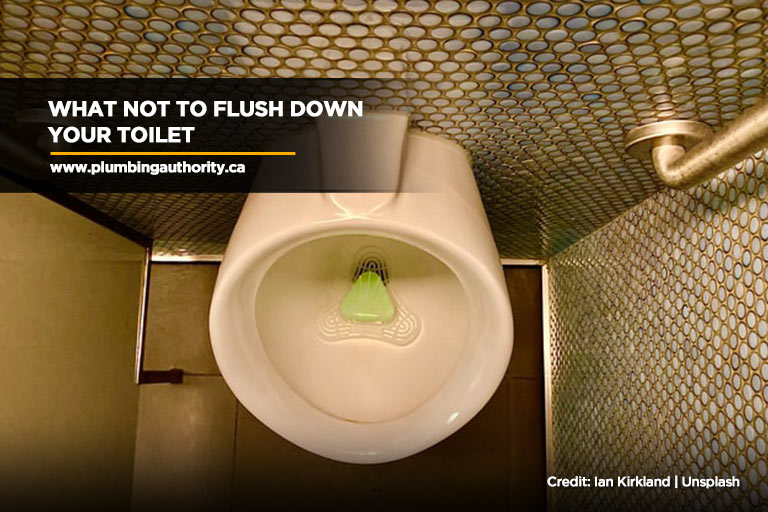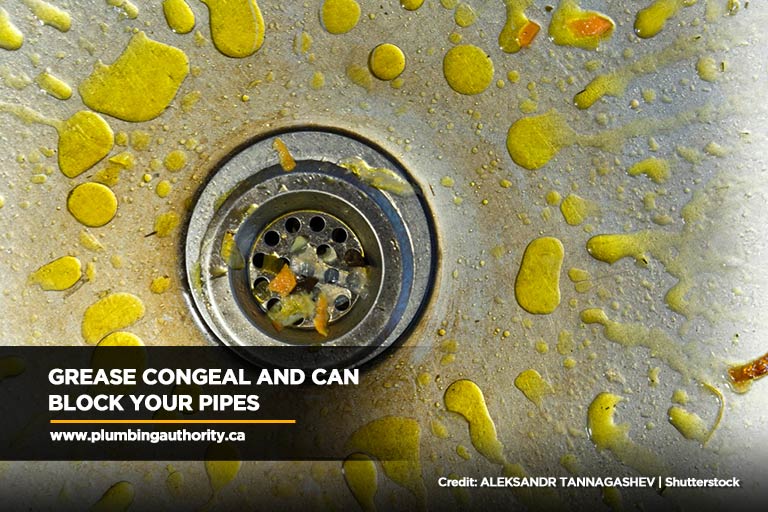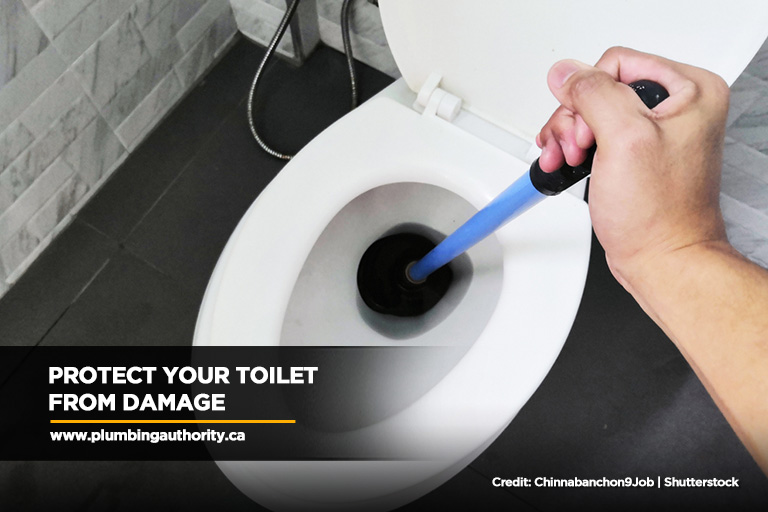
Toilets are a modern convenience for disposing of human waste, but they aren’t so great for other stuff. Because your pipes are only 4 inches wide at their widest point, even small, seemingly insignificant items can create serious plumbing issues. Hiring a professional to snake your clogged drain will set you back hundreds of dollars, not to mention the cost of fixing water damage caused by an overflowing toilet.
As a general rule, only human waste and toilet paper should be flushed. No matter how powerful your flush is or if you think the object is too small to cause harm in those large pipes, remember, your toilet should never be treated like a garbage can.
Here’s a list of what you should not flush down a septic tank to avoid a plumbing problems (and a pricey bill):
- Cat litter
Some cat litter products are advertised as flushable, but they can cause significant damage to a home’s plumbing. Most litter is made up of clay and sand, and the granules are designed to absorb moisture and can swell up to 15 times their original size in water. They will almost probably cause damage if they do not just clog the pipes when flushed.An even bigger problem arises when litter and feline excrement enter the water source. Cats may be carriers of the parasite Toxoplasma gondii which has also been found in their poo. Individuals with weakened immune systems may experience instant redness, blurred vision, and pain in their eyes. - Cigarette butts
Even if they’re not prone to getting trapped in the pipes instantly without other build-ups, the chemicals found in cigarette butts could be potentially dangerous to the environment and septic systems. Besides, cigarette butts don’t always go down the drain after just one flushing, which could be an unpleasant surprise for the next user. Each flush takes an average of 3 gallons of water, a hefty volume, especially for repeated use. - Cotton Balls or Swabs
While cotton balls, rounds, and swabs may appear small enough to be flushed, these can cause enormous problems down your pipes. After flushing, these cotton products do not disintegrate in water. Instead, they tend to pile up, resulting in blockages, as well as bent or broken pipes. - Feminine products
Tampons and pads are always featured on signs of what not to flush down the toilet. Keep in mind that, like diapers, these products are meant to expand when they absorb moisture, making them difficult to flush. They might not even make it through the U-pipe, depending on their size.These things cause problems in waste systems because they are non-biodegradable. Because septic system microbes are unable to break them down, they build up and compromise the system. - Fish or other small pets
You’ve seen it in movies — using the toilet as the final resting place for departed pets. While fish are the most common pets to flush down the toilet, hamsters and other small pets have also been flushed.Clogging is the most obvious threat to household plumbing, but if these creatures get through the pipes, they can clog and damage sewage systems and put a burden on septic tanks. - Grease, oils, and fats

Fats, oils, and grease should never be flushed down the toilet or any drain in the house. While frying grease, oils, and fats may be liquid, they quickly cool and congeal as they pass through the pipes. It may take some time, but these fats build up along the walls of the pipes. If you’re wondering why your toilet is not flushing fully, it could be because of this build-up, which makes it difficult for water to flow down the pipes and, in the worst-case scenario, obstruct them entirely. - Hazardous Materials
Never flush drugs or potentially dangerous home products (such as paint and some cleaning chemicals, including oven, window, and tile cleaners) down the toilet to help prevent water pollution. Dropping off unwanted or expired medicine at a drug take-back station is the best method to get rid of it. It is also preferable to find a pickup program in your region that can help you recycle or dispose of household hazardous waste responsibly. - Paper Towels and Tissues
Paper towels and facial tissues may be substitutes if you’ve run out of toilet paper, but remember, unlike tissues, they are not made for your drain. Because these paper goods absorb water rather than dissolve, they’re more likely to clog your pipes.Additionally, using too much toilet paper is not only wasteful but can also cause significant plumbing problems. Large wads of toilet paper are difficult to flush and can clog tiny pipes quickly. Use only what you need the next time you go to the bathroom to avoid problems. - Prescription medications
Most individuals feel that by flushing pills down the toilet, they are guaranteeing that their medication does not fall into the wrong hands. While the deed is noble, it is also quite risky. Because sewage systems do not remove medications from the water, they end up in our rivers, lakes, and oceans, contaminating groundwater supplies and harming wildlife. Pills can also kill beneficial bacteria that are an integral element of the system, damaging the septic tank. As an alternative, there are various community-based services, including pharmacies themselves, where you can safely dispose of leftover medication. - Wet wipes
Wet wipes should not be flushed, despite being labelled as such. Unlike toilet paper, which is designed to dissolve in water, adult wipes remain intact and can clog pipes over time. If they get beyond the home’s plumbing, they can pile up in sewer systems, resulting in “fatbergs.” Wet wipes are one of the most significant contributors to these build-ups, which can reach ten tons in size.Wet wipes aren’t necessary for a bathroom routine, but if you insist on using them, dispose of them rather than flushing them. Ensure that there is a trash can in each bathroom for these and other sanitary goods and clean them out regularly.

It’s crucial to remember that your toilet is not a substitute for the garbage can. Take note of this list of things not to flush down the toilet to protect your plumbing, and if in doubt, toss it in the garbage rather than flushing it.
In case you need a plumber in Caledon to repair or replace your sewer line, call Plumbing Authority at 647-992-PIPE (7473) today!




